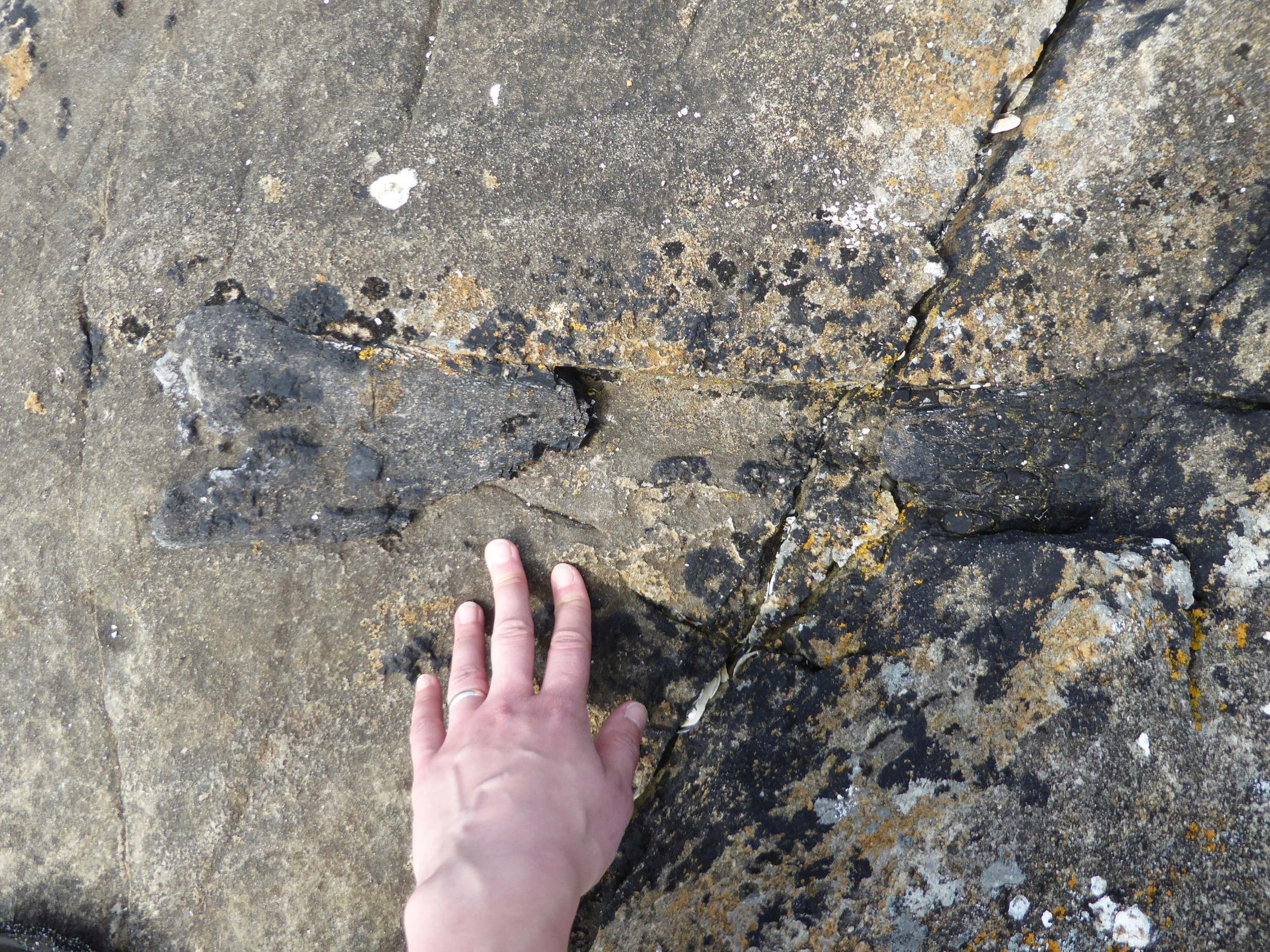Dinosaur bone discovered on Scottish Isle of Eigg in 'hugely significant' find
166-million-year-old fossil is first such evidence of dinosaurs in Scotland outside of the Isle of Skye

Your support helps us to tell the story
From reproductive rights to climate change to Big Tech, The Independent is on the ground when the story is developing. Whether it's investigating the financials of Elon Musk's pro-Trump PAC or producing our latest documentary, 'The A Word', which shines a light on the American women fighting for reproductive rights, we know how important it is to parse out the facts from the messaging.
At such a critical moment in US history, we need reporters on the ground. Your donation allows us to keep sending journalists to speak to both sides of the story.
The Independent is trusted by Americans across the entire political spectrum. And unlike many other quality news outlets, we choose not to lock Americans out of our reporting and analysis with paywalls. We believe quality journalism should be available to everyone, paid for by those who can afford it.
Your support makes all the difference.A dinosaur bone believed to be from a stegosaur-type dinosaur has been found on the Scottish Isle of Eigg.
The rare find is significant because it is the first time a dinosaur fossil has been found in Scotland outside the Isle of Skye.
The 166-million-year-old fossil, which is from a limb bone, was found by Dr Elsa Panciroli, a research affiliate at National Museums Scotland, in what she described as a “serendipitous discovery”.
She spotted the fossil embedded in a boulder on the foreshore of the tiny inner Hebridean island, and said the fossil had been damaged by waves.
“I was running along the shore on my way back to meet the rest of the team and I ran right over it,” she said.
“It wasn't clear exactly what kind of animal it belonged to at the time, but there was no doubt it was a dinosaur bone.”
She said that in 200 years of searching the area “no-one has found a dinosaur before, so this is quite special”.
She said: “This is a hugely significant find. Globally, Middle Jurassic fossils are rare and until now the only dinosaur fossils found in Scotland were on the Isle of Skye.
“This bone is 166 million years old and provides us with evidence that stegosaurs were living in Scotland at this time.”
The bone dates to the Middle Jurassic period and is just over half a metre long.
Despite the damage there is enough of the fossil remaining for a team of palaeontologists to study.
The bone was extracted and brought to a laboratory to be removed from the rock where it was found to be part of a rear leg of a stegosaur.
It dates to the same period as similar fossils found on Skye.
The Isle of Eigg is already known for its Jurassic fossils, particularly marine reptiles and fish, first discovered by 19th century geologist Hugh Miller.
Dr Steve Brusatte of the University of Edinburgh co-authored a paper on the find.
He said: “Elsa's discovery of this bone is really remarkable.
“Nobody, not even Hugh Miller himself, had found dinosaur bones on Eigg before.
“This fossil is additional evidence that plate-backed stegosaurs used to roam Scotland, which corroborates footprints from the Isle of Skye that we identified as being made by a stegosaur.”
The bone is now in the collections of National Museums Scotland in Edinburgh.
The fieldwork on the Isle of Eigg was funded by the National Geographic Society with the permission of The Isle of Eigg Heritage Trust.
The research is published in Earth And Environmental Transactions Of The Royal Society Of Edinburgh.
Additional reporting by PA
Join our commenting forum
Join thought-provoking conversations, follow other Independent readers and see their replies
Comments